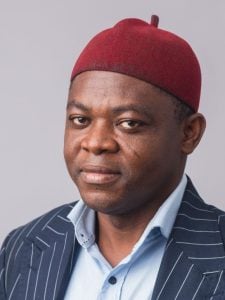Dr. Adu-Gyamfi Atuahene Boateng, CEO of Medimafo Herbal Hospital, also known as ‘Time Da So,’ has vehemently refuted claims that herbal medicines are responsible for kidney problems and other health complications. Speaking at the commissioning of a newly refurbished facility for the Department of Herbal Medicine at the Kwame Nkrumah University of Science and Technology (KNUST), a project he personally funded, Dr. Boateng stressed the importance of dispelling such misconceptions and promoting a more accurate understanding of herbal medicine. He backed his assertions with his own research in public health, specifically citing studies he conducted which demonstrated that certain commonly consumed foods, like kontomire (cocoyam leaves), are not causally linked to kidney disease. He urged relevant authorities and research institutions to invest in further scientific investigations to definitively establish the safety and efficacy of herbal medicines, thereby providing evidence-based reassurances to the public. Dr. Boateng’s commitment to advancing herbal medicine research is evident in his substantial financial contribution to the renovation project.
The renovation of the Department of Herbal Medicine facility at KNUST, funded by Dr. Adu-Gyamfi Atuahene Boateng to the tune of GH¢100,000 (approximately $17,000 USD), represents a significant step towards enhancing the university’s capacity for herbal medicine research and education. Dr. Boateng expressed his satisfaction with the completion of the project, noting that the funds were utilized judiciously and as agreed upon with the university leadership. He commended the department’s commitment to transparency and accountability in the execution of the project. The newly renovated facility boasts upgraded amenities, including new air conditioning units and high-quality floor tiles, providing a more conducive and comfortable learning environment for students and researchers. Furthermore, Dr. Boateng reiterated his commitment to supporting KNUST in its future endeavors, signaling a continued partnership between Medimafo Herbal Hospital and the university in advancing the field of herbal medicine. This collaboration underscores the growing recognition of the importance of integrating traditional herbal practices with modern scientific research.
Professor I.K. Amponsah, Head of the Department of Herbal Medicine at KNUST, expressed profound gratitude for Dr. Boateng’s generous contribution. He acknowledged the university’s ongoing challenges in infrastructure development and the financial constraints exacerbated by the COVID-19 pandemic. The pandemic’s impact on university funding further highlights the significance of private sector partnerships like the one with Medimafo Herbal Hospital. Professor Amponsah emphasized that the renovated facility is not only a testament to the fruitful collaboration between the university and Medimafo Herbal Hospital but also a symbol of the shared vision to elevate the status of herbal medicine in Ghana and beyond. He viewed the improved facilities as a catalyst for greater research output and a more robust training environment for the next generation of herbal medicine practitioners.
The collaboration between Dr. Boateng and KNUST underscores a broader movement towards recognizing and integrating traditional medicine practices within the framework of modern scientific research. Dr. Boateng’s call for further research into herbal medicine safety and efficacy reflects a growing awareness of the need for evidence-based validation of traditional remedies. This approach not only aims to dispel unfounded fears and misconceptions but also seeks to identify and harness the potential therapeutic benefits of herbal medicines in a scientifically rigorous manner. The investment in the Department of Herbal Medicine’s infrastructure signifies a belief in the future of herbal medicine and its potential contribution to healthcare. By providing a conducive environment for research and education, the renovated facility aims to foster innovation and discovery in the field, leading to the development of safe and effective herbal medicines.
The commissioning of the renovated facility marks a significant milestone in the advancement of herbal medicine research and education in Ghana. It reflects a growing recognition of the importance of integrating traditional knowledge with modern scientific methodologies. By investing in research and infrastructure, Dr. Boateng and KNUST are paving the way for a more evidence-based approach to herbal medicine, ultimately contributing to the development of safe and effective healthcare solutions. This collaborative effort signifies a commitment to exploring the potential of herbal medicine while addressing concerns regarding its safety and efficacy. The partnership also serves as a model for future collaborations between private entities and academic institutions, fostering innovation and driving progress in the field of herbal medicine.
This partnership between Medimafo Herbal Hospital and KNUST highlights the potential for synergistic collaborations between traditional medicine practitioners and academic institutions. By combining traditional knowledge with scientific research methodologies, they aim to unlock the full potential of herbal medicine while ensuring its safe and effective application. The renovated facility stands as a testament to their shared vision of advancing herbal medicine research and education, ultimately contributing to improved healthcare outcomes in Ghana and beyond. The investment in infrastructure represents a commitment not only to preserving traditional knowledge but also to integrating it into the mainstream healthcare system through rigorous scientific investigation. This collaborative effort sets a precedent for future partnerships between traditional medicine practitioners and academic researchers, fostering a more holistic and integrative approach to healthcare.














